Quick and Easy Refrigerator Pickles
- By Jennifer Segal
- Updated July 8, 2025
- 919 Comments
- Leave a Review
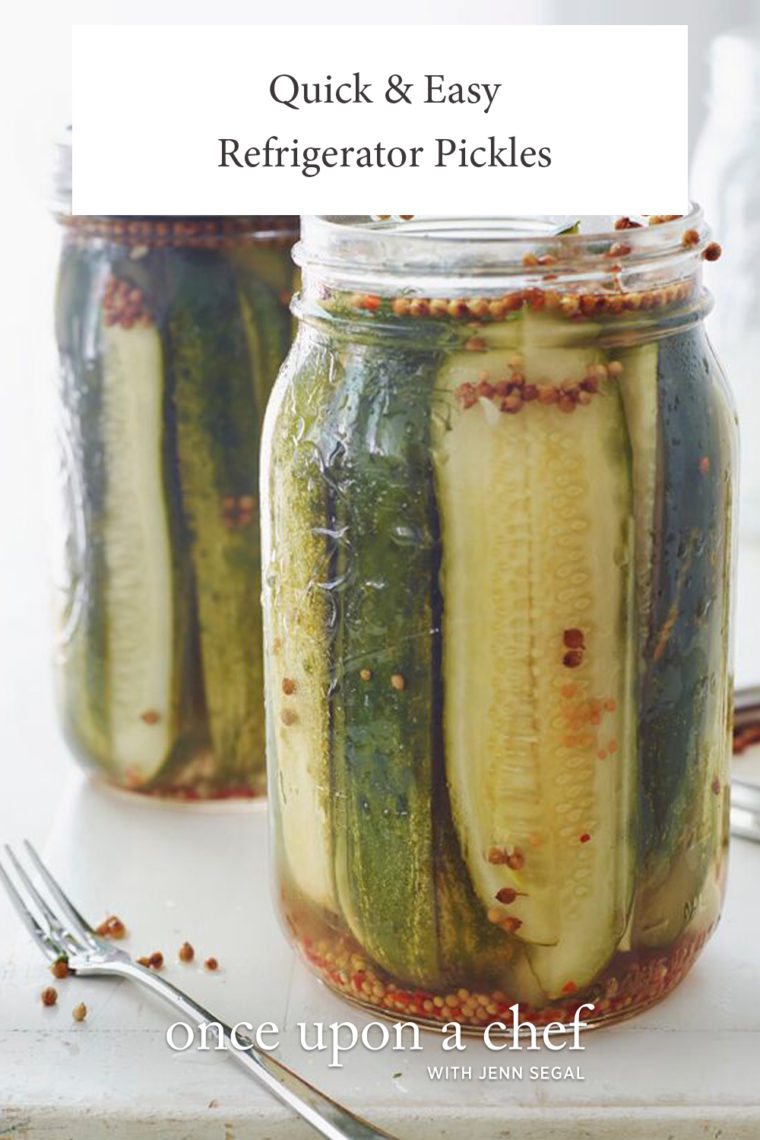
This post may contain affiliate links. Read my full disclosure policy.
Refrigerator pickles are quick and easy to make—no sterilizing jars or special equipment required. Perfect with burgers, sandwiches, or straight from the jar.
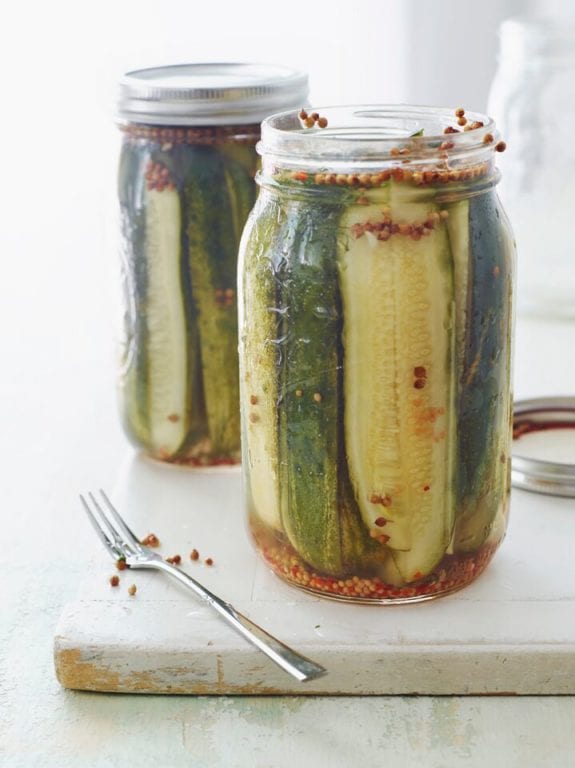
Photo by Alexandra Grablewski (Chronicle Books, 2018)
The kids and I discovered a jar of these homemade refrigerator pickles in my parents’ fridge one day, and since then, no deli or store-bought pickles have ever come close. They were made by one of my mom’s oldest and dearest friends, Joanne Biltekoff, who is like an aunt to me.
The best thing about Joanne’s pickles is that they’re quick and easy—no canning supplies or sterilized jars needed. Simply slice Kirby cucumbers into spears, cover them with brine, tuck them into the fridge, and they’re ready to eat the next day.
“For the first time, I grew pickling cucumbers and found your recipe to make pickles. I can’t believe how wonderful they are!”
What You’ll Need To Make Refrigerator Pickles
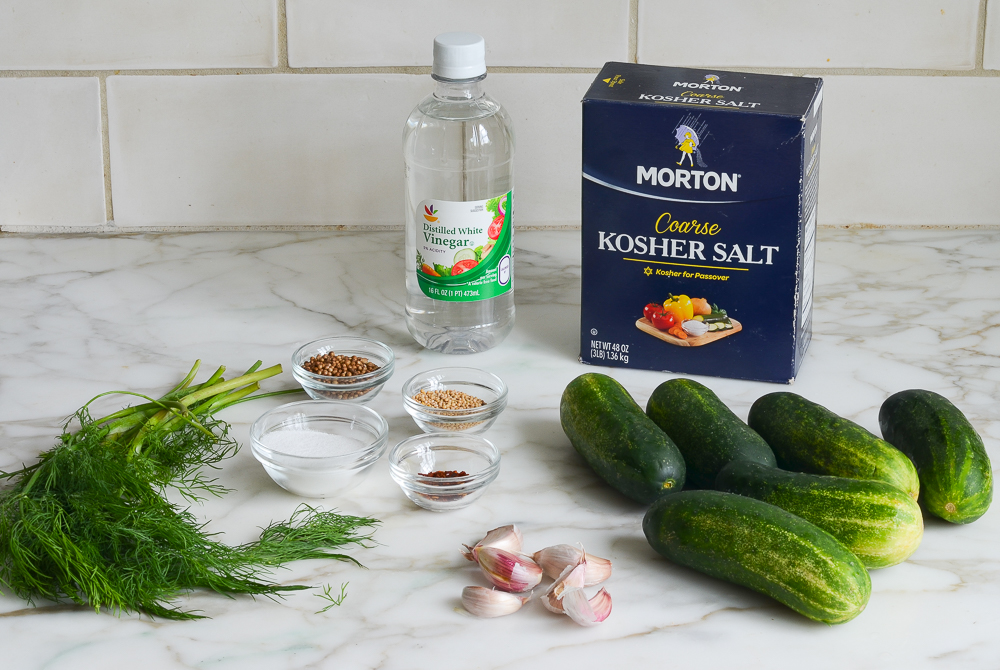
The most important part of the recipe is to start with Kirby or pickling cucumbers. They’re short, squat and sometimes full of warts, but they make deliciously crisp pickles. Don’t be tempted to substitute another kind of cucumber or you’ll end up with soggy pickles.
Step-By-Step Instructions
Step 1: Make the brine. Combine the vinegar, salt and sugar in a small saucepan. Heat and stir until the salt and sugar are completely dissolved. Whisk in the cold water, then chill.
Pro tip: When cooking high-acid foods, be sure to use a cooking vessel made of a nonreactive material such as stainless steel, glass, ceramic or Teflon. Pots made from metals like aluminum, copper or cast iron will react with the acid and give your food a metallic taste.
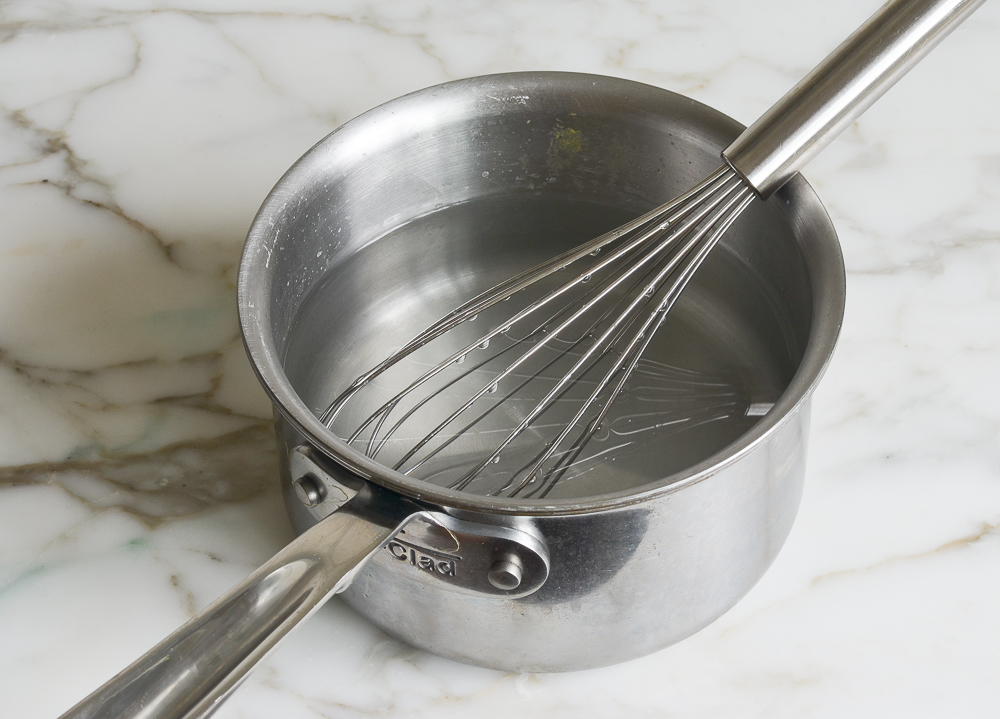
Step 2: Fill the jars. Next, stuff the cucumbers into two 1-quart jars. Add the coriander and mustard seeds, garlic, red pepper flakes, dill sprigs to the jars, dividing evenly.
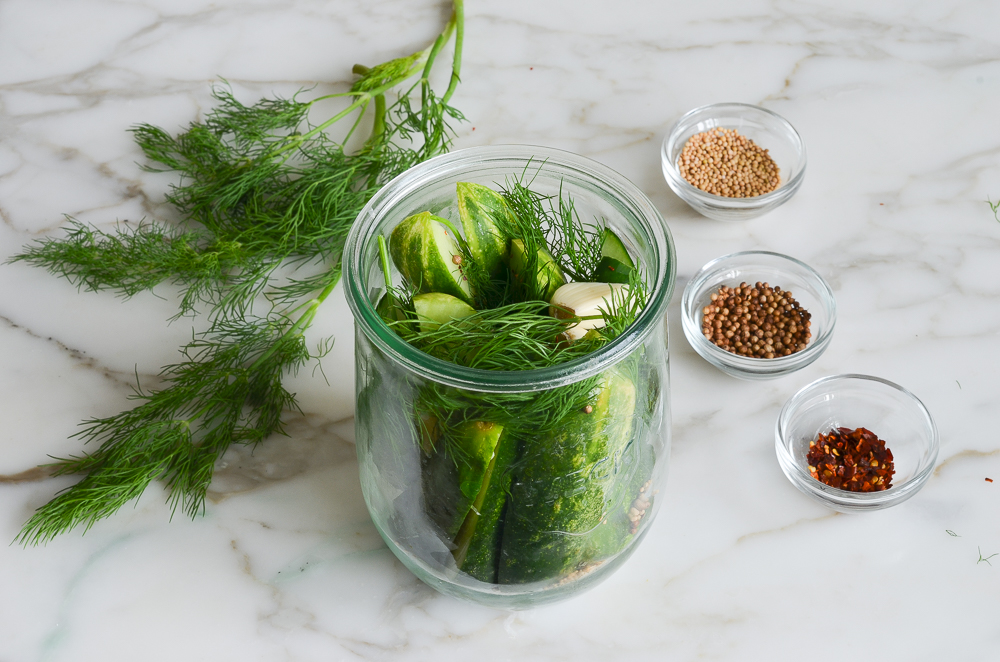
Step 3: Add the brine. Cover the cucumbers with the chilled brine. If needed, you can add a bit of cold water to the jars until the brine covers the cucumbers.
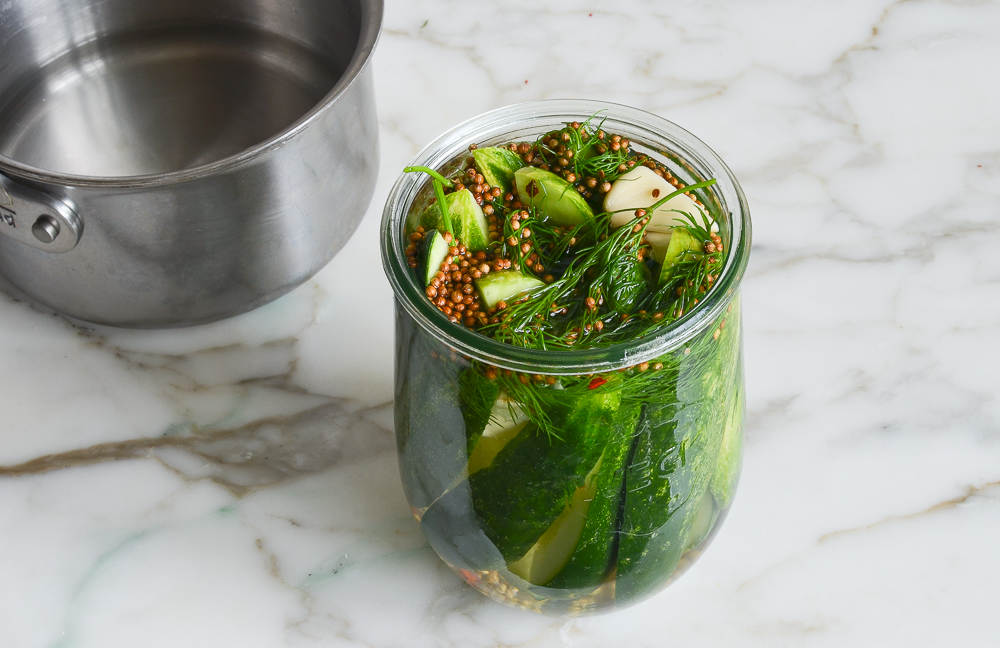
Step 4: Refrigerate. Cover the jars and let sit in the refrigerator for about 24 hours, then serve. The pickles will keep in the fridge for up to one month. Enjoy!
Pro tip: These pickles disappear quickly. If you’d like to make more, you don’t have to start from scratch. You can use the pickle brine more than once—it should last for another batch or two of pickles!

You May Also Like
Quick & Easy Refrigerator Pickles

No canning, no fuss—just crisp, tangy pickles you’ll want to eat with everything!
Ingredients
- 1¼ cups distilled white vinegar (5% acidity)
- 3 tablespoons kosher salt
- 2 tablespoons sugar
- 2 cups cold water
- 1¾ to 2 pounds Kirby cucumbers (about 6), cut into halves or spears
- 2 tablespoons coriander seeds
- 6 large garlic cloves, peeled and halved
- 1 teaspoon mustard seeds
- ¼ teaspoon red pepper flakes
- 16 dill sprigs
Instructions
- Combine the vinegar, salt and sugar in a small non-reactive saucepan (such as stainless steel, glass, ceramic or teflon) over high heat. Whisk until the salt and sugar are dissolved. Transfer the liquid into a bowl and whisk in the cold water. Refrigerate brine until ready to use.
- Stuff the cucumbers into two clean 1-quart jars. Add the coriander seeds, garlic cloves, mustard seeds, red pepper flakes, dill sprigs, and chilled brine into jars, dividing evenly. If necessary, add a bit of cold water to the jars until the brine covers the cucumbers. Cover and refrigerate about 24 hours, then serve. The pickles will keep in the refrigerator for up to one month.
Gluten-Free Adaptable Note
To the best of my knowledge, all of the ingredients used in this recipe are gluten-free or widely available in gluten-free versions. There is hidden gluten in many foods; if you're following a gluten-free diet or cooking for someone with gluten allergies, always read the labels of your ingredients to verify that they are gluten-free.
See more recipes:
Comments
Add a Comment Cancel reply
This site uses Akismet to reduce spam. Learn how your comment data is processed.

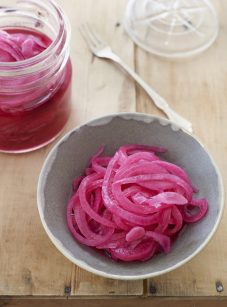
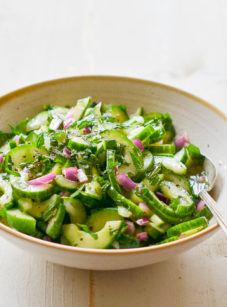
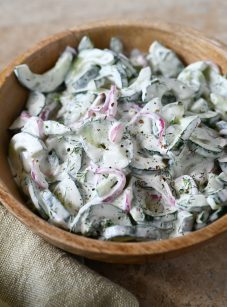
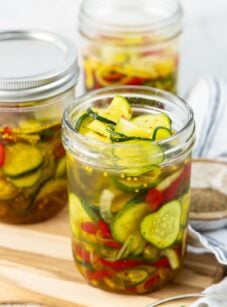
Easy and delicious! Everyone loves this recipe.
I made these pickles after buying fresh cucumbers at the farmer’s market. It was an easy recipe to follow. I made 2 quarts and refrigerated them. Unfortunately, after 4 days I tried them and found them to be quite salty. I like salt but for me they were unpleasantly salty. Otherwise a good recipe.
These are the most amazing pickles ever!!! Is this ratio safe for canning as well? Would love to stock my shelves with these😊
Glad you like them! I didn’t develop this recipe with canning in mind, so I’m not certain it would be safe – sorry!
I made these my new pickle – so crisp and delicious in 24 hrs. I will be making more regularly!!!
Thank you
I made your recycle refrigerator pickles and they were a hit! Making a second batch since I only have 2 jars, but some crazy huge cucumbers. Thanks.
Delish! Crisp and savory
Thank you for this recipe. It’s exactly what I’ve been looking for!
This is my go to recipe. I’ve made it about 6 times. I make 10 one quart (litre) jars at a time for the two of us and share with neighbors and friends. So use this recipe x 5. You may have to have more brine (7x?) One pound of pickling cucumbers per jar. I leave ours whole while snipping the top and bottom. Very crispy. Don’t buy that jarred store product. Thanks
OUAC.
I just made this brine yesterday and pickled some cucumbers, red peppers, and green tomatoes (all from my garden). I used the walmart brand of pickling spice as I didn’t have those spices on hand and didn’t want to buy them individually. All that paired with garlic and Dill (also from my garden). Oh my goodness, if you have been looking for a pickling recipe look no further. These are the best pickeled anything I’ve ever had. This is now my go-to recipe and I’m already sharing it with family and friends.